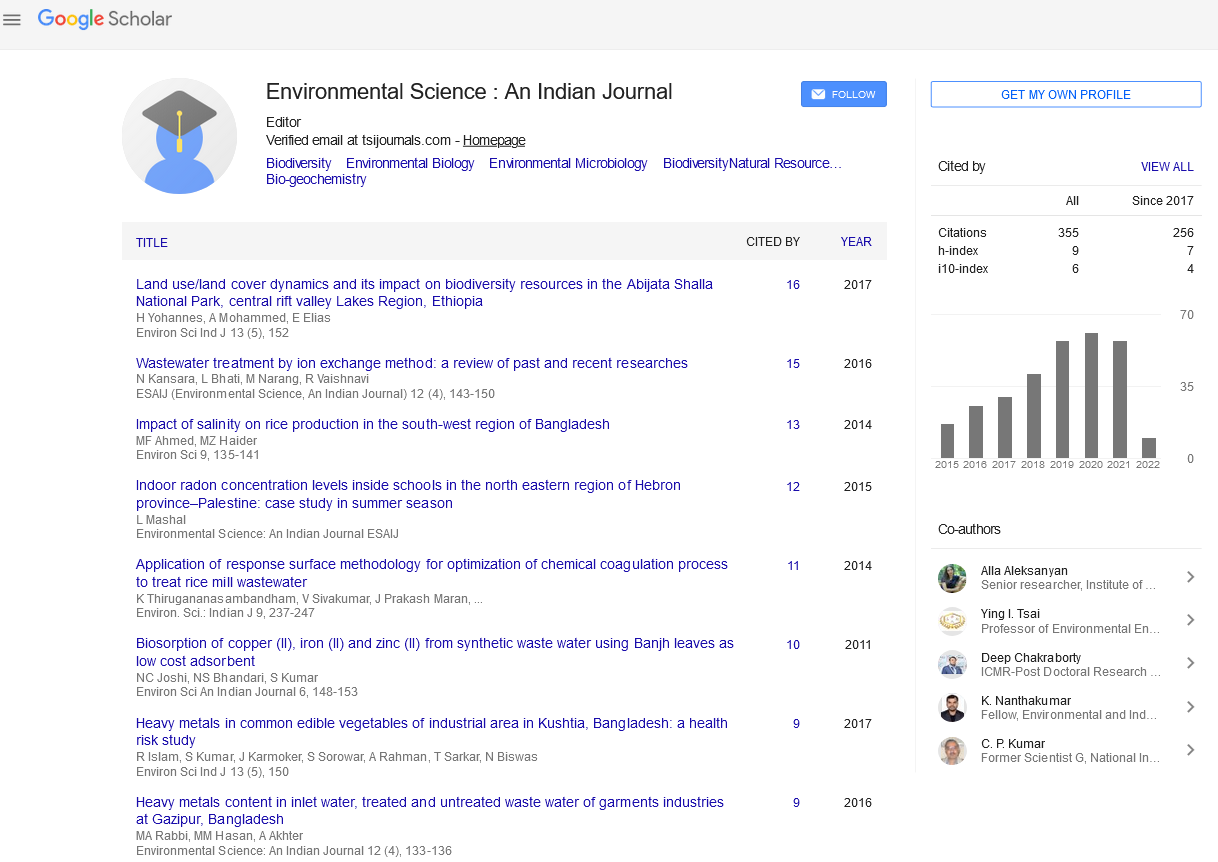Abstract
Effect of Various Concentrations of Lignin Degrading Microbes for Efficient Coir Pith Treatment
Author(s): Priya V, Sampath Kumar MC and Balasubramanya NCoir pith as a by-product, remains in the soil for long time and results in the ground water pollution and erode the soil completely due to the leaching during Monsoon times. This implies the importance of lignin degradation in the coir pith using microbes at various concentration to increase the productivity of enzymes in a short duration of time. Enzymes are unstable proteins which promote chemical reaction in a process. Lignin is one of the major classes of compound that are present in the coir pith. Increased lignin content in the coir pith makes its natural degradation much slower due to the lignin-cellulose complex. It is very fortunate to imply the use of microbes in the degradation process. Lignin degrading enzymes released as a result of microbial action in the coir pith. The enzymes act as catalysts which are responsible for decomposition. This study helps in the detection of major enzymes as a result of lignin degradation ending in the usage of risk free, pollution free coir pith. This study aimed at the lignin degradation for the detection of lignin degrading enzymes using the fungi such as Phanerochaete and Trichoderma viride. The inoculum concentration of the microbe added in the coir pith was compared for the efficiency and the best treatment with the concentration of microbe was recorded. At the end of the research study, the higher concentration of the microbe produced higher enzyme release in shorter duration. Clostridium treated coir pith was better performing at all the concentrations than Rock phosphate.

